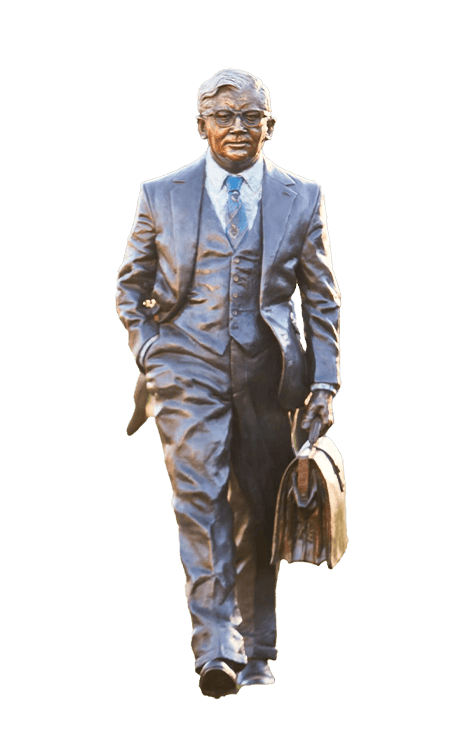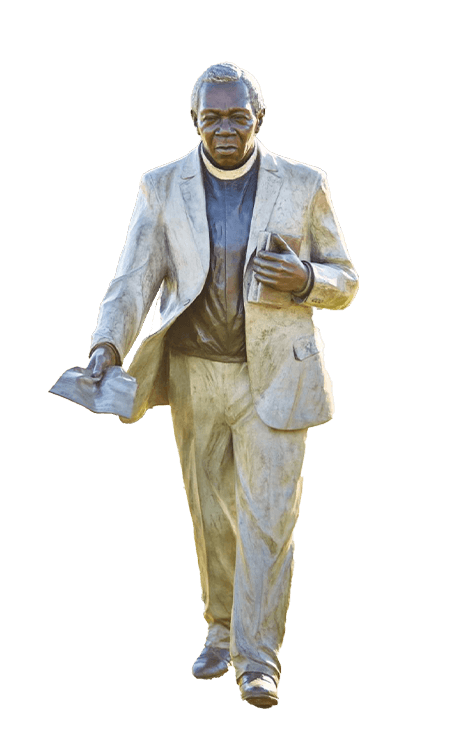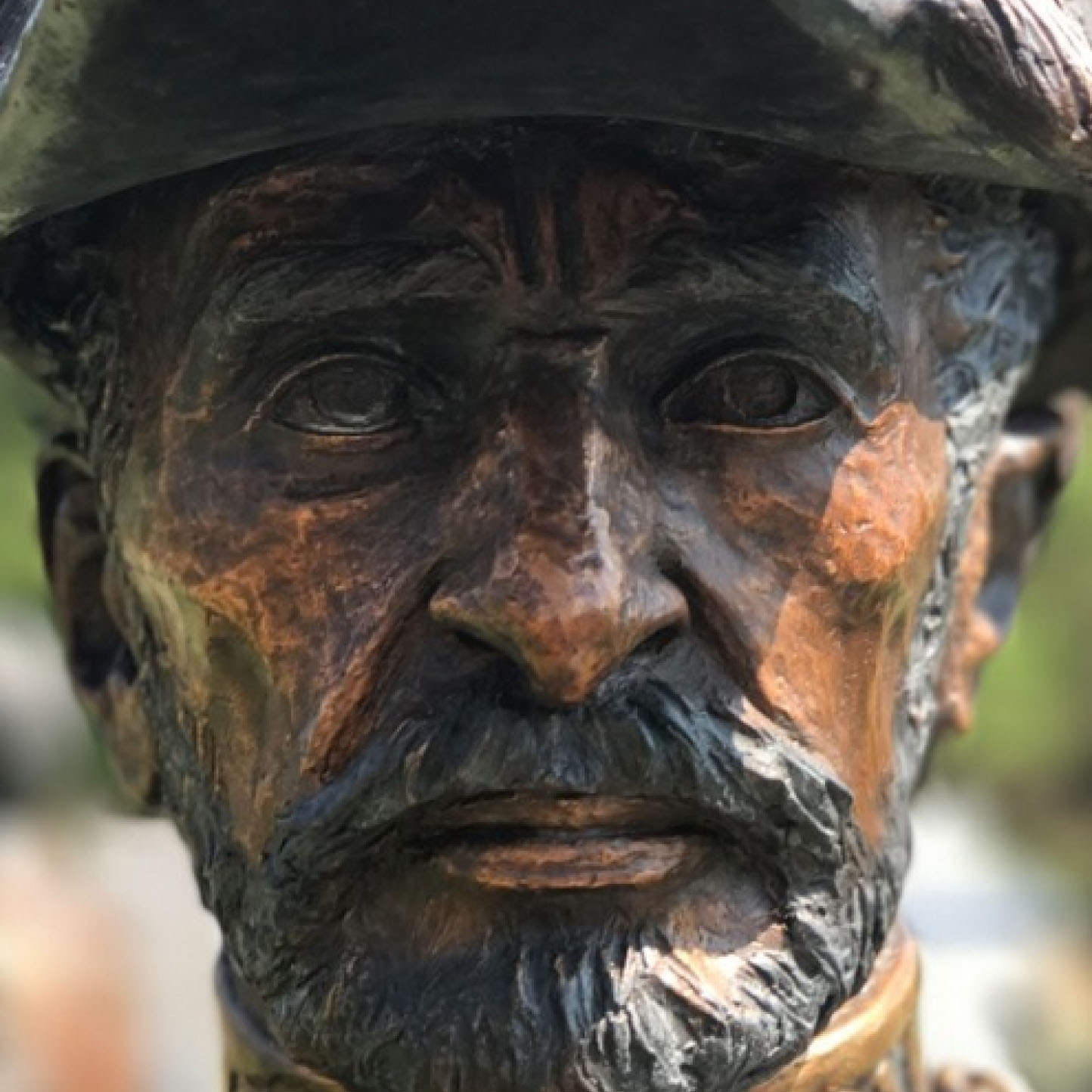
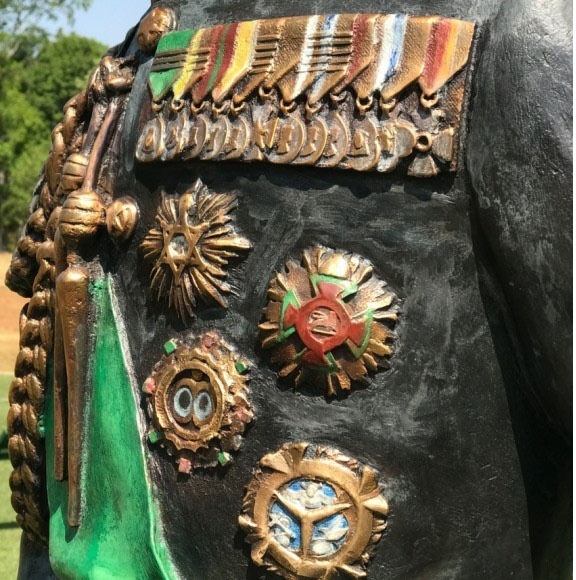
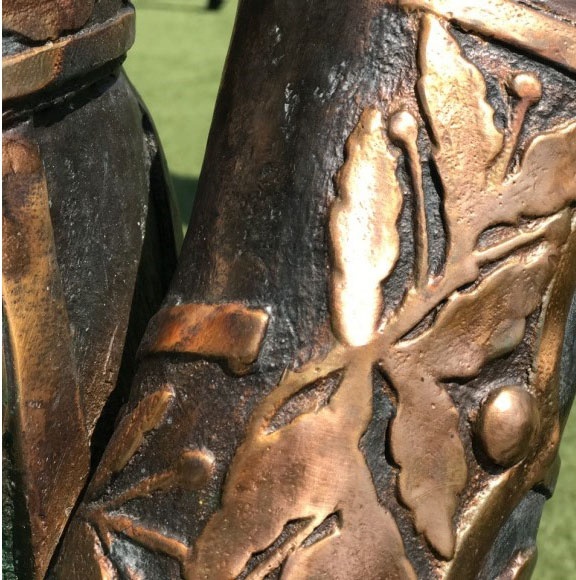
"This is indeed a momentous and historic day for Africa and for all Africans. We stand today on the stage of world affairs before the audience of world opinion. We have come together to assert our role in the direction of world affairs and to discharge our duty to the great continent whose 250 million people we lead."
Haile Selassie in his acceptance speech as first chairperson of the Organisation of African Unity (OAU), OAU headquarters, Addis Ababa, Ethiopia. 25 May 1963
Haile Selassie
1892 - 1975
Ethiopia’s Regent and Emperor, Chairperson of the Organisation of African Unity
Haile Selassie was the last ruling emperor of Ethiopia.
He was the son of a chief adviser to Emperor Menilek II of Ethiopia, who mentored Tafari and put him in positions of power from a very early age. In 1906, Tafari, then only 14, became governor of a minor province in Ethiopia. Over the next few years, under the protective wing of Emperor Menilek II, he became governor of several other small provinces and continued his studies.
After Menilek II's death, Tafari became a prominent political figure who began influencing the Ethiopian government and quickly gained national attention for his progressive policies. He was seen as a younger and fresher face that was more globally minded, an image that was reinforced after he secured Ethiopia's entry into the League of Nations in 1923 with a promise to halt slavery.
In 1924 he embarked on a world tour, becoming the first Ethiopian ruler to travel outside of the country. His vibrant and unique appearance made him something of a celebrity, extensively covered by the media.
In 1928, he took on the title and responsibilities of king. When the reigning Empress Zewditu died two years later he became emperor and took on the title of Haile Selassie, which translates to 'Might of the Trinity'. He reformed the constitution to strengthen his own power while enforcing dramatic reforms, with a focus on education and the police force.
During the 1930s, Ethiopia became the target of attacks from Benito Mussolini's fascist regime in Italy. In 1936, the country was invaded and Selassie was forced to spend several years in exile in England. He went before the League of Nations to condemn the invasion, and won the support of England in his mission to liberate Ethiopia and reinstate himself as emperor.
After reclaiming this position, Selassie set about restoring his power by enforcing further social, economic and educational reforms. In 1955 he granted a new constitution that entrenched his power over the Ethiopian government.
By the early 1970s an extended famine brought about soaring unemployment and crime rates, weakening his reign. In 1974 mutinies broke out among his own forces and he was ousted in a coup. He spent the rest of his life under house arrest in his own palace, but to this day is still remembered and celebrated by the Rastafarian religion as a god incarnate.
Did you know?
Tafari is considered to be a god made incarnate messiah of the African race by the Rastafarian religion as the one who can unify African races. The name of the religion comes from Ras and Tafari, a combination of his name and the noble title Ras, which translates to 'prince'. Fittingly, he was instrumental in founding the Organisation of African Unity in 1963 with founding member Julius Nyerere.
